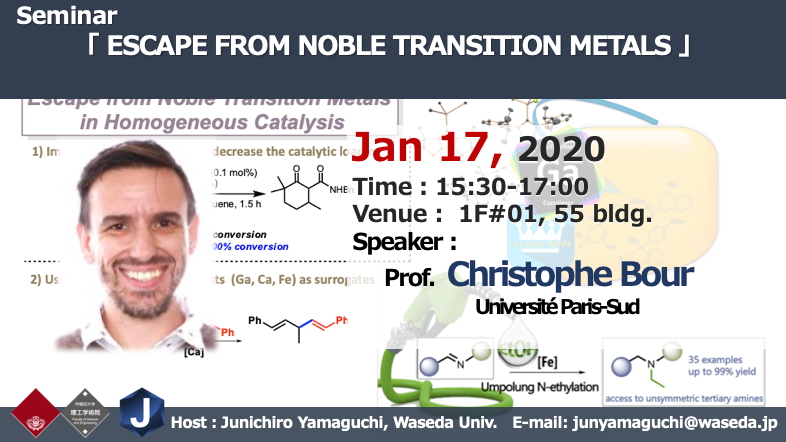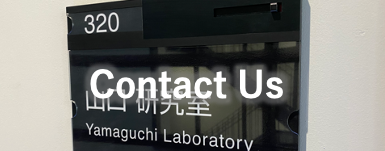News
1.92020
Seminar, Jan, 17th, 2020: Prof. Christophe Bour [Université Paris-Sud]
Today:1views / Total:791views

The discovery of simple processes and reactions has always been one of the priorities of modern organic chemistry. It has a strong impact in diverse areas such as the elaboration of new drugs, production of materials with specific properties, sourcing and storage of energy… Over the last thirty years, the emergence of organotransition-metal chemistry has afforded a significant step forward. It still represents one of the most important chemical endeavors. The rush into this chemistry has slowed down the development of synthetic methods relying on main-group elements. Many of these processes rely on the use of complexes of late transition metals of the 2nd and 3rd rows (Pd, Ru, Rh, Ir, Pd, Pt, Ag, Au…). To circumvent the elevated cost of this rare elements and their toxicity, various strategies are conceivable. One is to use heterogeneous reusable complexes; however the lower investment in catalyst can be counterbalanced by a costly recovery step. Another way is to improve the efficiency of the process, so that only a trace amount of catalyst can be used. Lastly, a third option consists in replacing noble metals by abundant elements of biocompatible main-group compounds among which derivatives of s-block or p-block metals can be efficient surrogates. In that respect, we explored these two last strategies and we disclosed that well-defined first row transition metal as well as Group 13 metals or calcium derivatives could be used as catalysts for C-C and C-N bonds formations.
Christophe Bour was born in Strasbourg, France, we he studied chemistry. He received a PhD degree in Organic Chemistry at University of Strasbourg, France with Professor J. Suffert (2006). Next he did his postdoctoral work with Professor A. Echavarren at the ICIQ institute in Spain, before being appointed as an assistant professor at the University Paris Saclay (2010). Subsequently, he become lecture (2014) and his research interests include the development of the both new catalysts and new reactions.
Recent News
-
2024/4/11
-
2024/4/8
-
2024/4/1
-
2024/3/27
Seminar, Mar 28th, 2024: Dr. Gregory J. P. Perry [University of Southampton]
-
2024/3/8
(日本語) 講演会 2024年3月8日 16:20- Tibor Soós 博士 [Research Centre for Natural Sciences]
-
2023/12/23


 日本語
日本語 中文
中文

